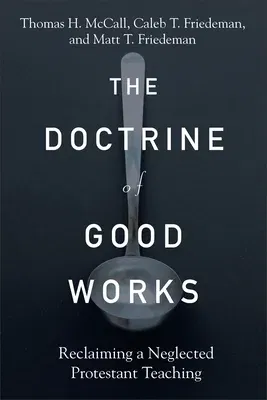Thomas H McCall
(Author)The Doctrine of Good Works: Reclaiming a Neglected Protestant TeachingPaperback, 25 July 2023

Temporarily out of stock
Free Delivery
Cash on Delivery
15 Days
Free Returns
Secure Checkout

Print Length
224 pages
Language
English
Publisher
Baker Academic
Date Published
25 Jul 2023
ISBN-10
1540965201
ISBN-13
9781540965202
Description
Product Details
Book Format:
Paperback
Country of Origin:
US
Date Published:
25 July 2023
Genre:
Christian
ISBN-10:
1540965201
ISBN-13:
9781540965202
Language:
English
Location:
Grand Rapids
Pages:
224
Publisher: